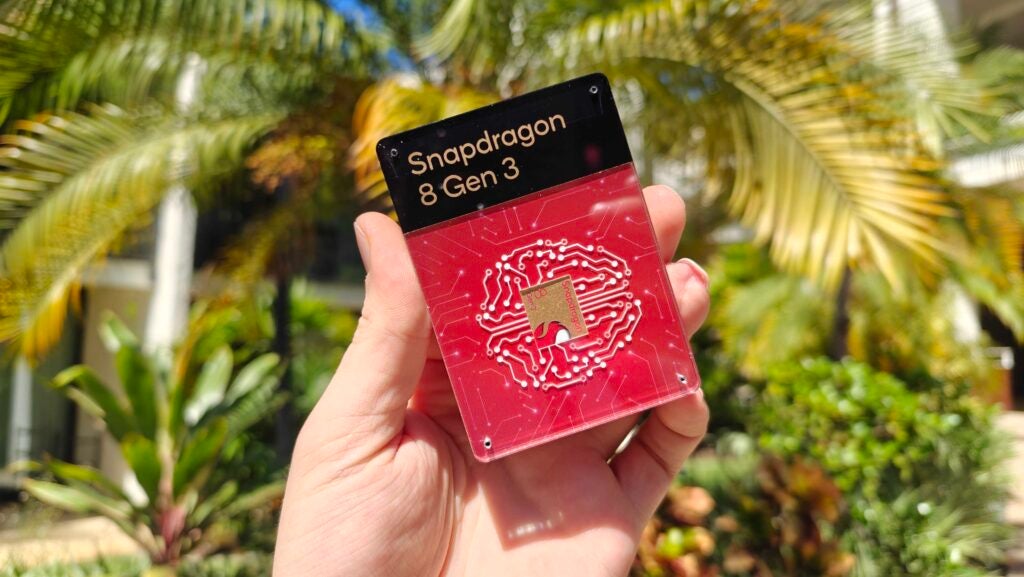OPINION: OnePlus today launched the OnePlus 12 worldwide, but it lacks a crucial element that will dominate in the 2024 smartphone market – GenAI capabilities.
We’ve known that the OnePlus 12 would sport the Qualcomm Snapdragon 8 Gen 3 for quite some time; it was rumoured after the reveal of the chipset in October, and was confirmed when the phone launched in China in December 2023.
But what is it that makes the Snapdragon 8 Gen 3 so important in the world of smartphone chips? According to Qualcomm, it’s the support for generative AI tasks and, specifically, the ability to run them all on-device without an internet connection.
Qualcomm even showcased a few possible use cases for the tech at Snapdragon Summit, including ChatGPT-esque text generation, generative photo fill capabilities and even niche uses like using a camera’s ToF sensor to measure air quality in real-time.

This, of course, got everybody pretty excited. It’s a big step forward from using cloud-based generative AI, like ChatGPT in its current form, as it requires a decent internet connection and is a bit of a privacy concern, especially if you’re uploading images to be edited. The ability to do that on-device would solve those issues and be much more responsive overall.
Phone manufacturers have begun to utilise this tech in earnest. We saw it just last week with the reveal of the Samsung Galaxy S24 range and Galaxy AI. In fact, the first hour was dedicated to the GenAI tech while the actual phone specs were brushed under the carpet.
It’s impressive stuff too; the Galaxy S24 range can record meetings, transcribe and translate them and even summarise them for easy reading later. There’s also tone adjustment that’ll rewrite text messages and emails to sound more formal, informal or even Shakespearean, and there’s generative fill capabilities to straighten images too.
That’s all pretty impressive tech, and while I’ve not yet fully reviewed the Galaxy S24 Ultra, I’ve been blown away by the transcription and summarisation tech so far.

Honor has also revealed a GenAI-powered version of its MagicOS software. While it’s not available in the Western market just yet, the upcoming software uses AI to shorten tasks like booking hotels. Rather than inputting details manually, you can drag and drop a text message from a friend into the app and have the AI add the details automatically.
There’s also Motorola’s MotoAI on the horizon, though details on whether that’ll appear on this year’s Motorola Edge range are yet to be confirmed.
To have all that on offer from the 2024 competition makes the fact that the OnePlus 12 does nothing to utilise the GenAI capabilities of the chipset all the more disappointing. I’m not expecting a complete rethinking of the OS, but considering Qualcomm provides APIs to implement some of the cool GenAI tech it showcased in late 2023, it’s a shame to see nothing here.
As smartphone manufacturers continue to pull away from core specs and focus more on the cool AI-powered stuff their phones can do (in addition to boasting a top-end spec), the less the OnePlus 12 will be able to stand out from the competition. Let’s hope things change with the release of OxygenOS 15…









